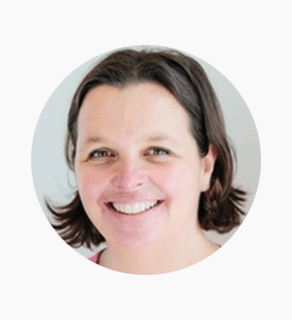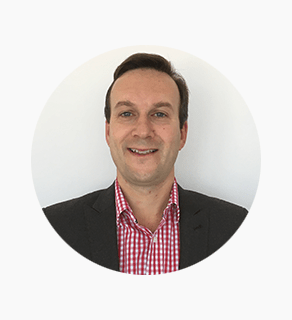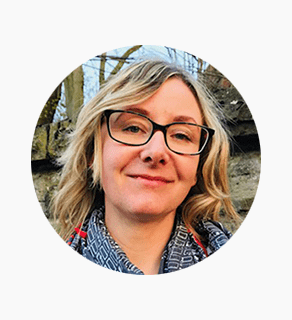Surgical Team member profiles
Being an Surgical Team member of RCS England enables you to join a growing professional community of more than 28,000 members across the UK and internationally. Read about our Surgical Team members and their journey in surgery. Find out how you can become an associate member and help to advance surgical care.

Angela Windle
'I am currently doing an e-learning package that RCS England offers to support my clinical experience in the care of colorectal cancer patients. The access to educational resources for myself and my team has been one of my main reasons to join the College.'Angela Windle
Read Angela's story
Job title: Advanced Clinical Practitioner
Specialty: Colorectal Surgery
Tell us about your career to-date:
I am a nurse by background who trained at Westminster Hospital, London 1987-1990. I began my working life as a staff nurse on a surgical ward at Westminster Hospital and I have worked in intensive care units throughout London before relocating to Yorkshire in 1999. In Yorkshire I have worked in paediatric intensive care, in a children’s hospice, as a clinical skills teacher for medical students, as a critical care outreach sister and then trained as an advanced clinical practitioner in general surgery.
I have undertaken academic study to support my varied clinical experience and possess a BSc in biological sciences, a MSc in nursing, a postgraduate diploma in advancing professional practice as well as a post postgraduate certificate in medical education.
I currently work as an advanced clinical practitioner (ACP) in the colorectal department at St James’s University Hospital Leeds (SJUH) as part of the expanding surgical care team.
What does an average day look like for you?
I cover the elective colorectal surgical patients at SJUH. This role involves completing a ward round with the surgical trainees or consultants and then I manage the care of the surgical patients throughout the day. I also spend one day per week supporting the development of the trainee ACPs with their WPBAs and organise the teaching for the foundation year doctors whilst they are on rotation.
Our new role in general surgery also requires constant service development as we are expanding so I help manage the recruitment of new ACPs and the expansion of our involvement into acute care, developing the role of the ACP with independent clinic review of surgical patients alongside our surgical colleagues.
What do you love about surgery / your job?
Being a surgical ACP is the hardest and most rewarding job I have ever done. The ward environment can be very challenging but the holistic, continuity of care that an ACP brings to the surgical team is highly valued. Working in surgery means you have the chance to be part of a team that can change a patient’s quality of life. You enter a journey from diagnosis to discharge with the patient and their family which is very rewarding. As an experienced practitioner, I can be the steering force through difficult times in the busy, stressful healthcare environment and supporting my colleagues throughout the whole surgical care team is a privilege.
What are your three top tips for someone interested in a career in your role?
- To become a surgical ACP, you need to build a significant volume of clinical experience in a variety of different settings both surgical and medical experience and this experience will help you manage the complexity of the surgical patient’s conditions.
- Be prepared to study outside out your working hours and keep going when the study seems overwhelming.
- Get involved in your organisation’s project work to see beyond the narrow spectrum of the ward/clinic/department. There are lots of opportunities to learn quality improvement and service development. Just be proactive, you will meet other members of the hospital team who have the same goal but different aspects to the package of care delivered to the patient, from managers to admin staff. It is important to learn about the different systems within a complex organisation.
Why did you become a member of RCS England?
I am keen to ensure that ACPs are part of the whole surgical care team and the work being undertaken to accredit ACPs within the college is very exciting. I am currently doing an e-learning package to support my clinical experience in the care of colorectal cancer patients. The access to educational resources for myself and my team has been one of my main reasons to join the College.
What are your hobbies/interests outside of work?
I have four children, a husband and a dog….that is work enough and my current focus outside of work is to help these four young people on the journey to becoming lovely happy well-adjusted adults. So far it is working!

Bradley Russell
'The RCS was the logical choice for me in supporting SCPs, especially as surgery is the backbone of the role. I believe they can provide guidance to those who are training or practicing, as well as ensuring standards remain high.'Bradley Russell
Read Bradley's story
Tell us about your career to-date:
I had my ‘eureka moment’ whilst on theatre placement in my first year of nurse training. I shadowed a cardiac SCP and immediately knew this was the career I wished to aspire to! After qualifying I went straight into scrub nursing and during my first two years I was able to complete my Adult Nursing MSc. I began my Surgical First Assistant training shortly thereafter, and with the purchase of a second surgical robot, a permanent patient side assistant was sought by the urology team. I was recruited as a urological trainee SCP and completed the two year MSc programme at Anglia Ruskin University in March 2018.
What does an average day look like for you?
No two days are the same. My job consists of 75% theatre work with a mixture of robotic, laparoscopic and open surgery for five urology consultants. As we have a dual console robots, I am able to patient side assist whilst the junior surgeon is being trained by the consultant. Likewise, I can support a senior trainee at the operating table so that the consultant can remain un-scrubbed. I run my own urodynamic clinic with the help of a Healthcare Assistant and hold regular pre-robotic prostatectomy schools for patients who are scheduled to undergo a robotic assistant laparoscopic prostatectomy. Any non-clinical time is taken up with audit, research and teaching.
What do you love about surgery / your job?
In my opinion, teamwork is the pinnacle of good surgical care and I have always been inspired by the coming together of specialists to provide dedicated treatment for a patient as one in the operating theatre. Working alongside senior trainee surgeons continues to provide a mutual opportunity for learning; I support them where needed and they reciprocate with guidance on certain steps of a procedure that I may perform for my continued leaning and development. Our extended surgical care team also consists of experienced ANPs and CNSs who are valued colleagues and who I often work alongside outside of the theatre environment.
What are your three top tips for someone interested in a career in your role?
- Be enthusiastic and driven. If you and a consultant have identified a need for an SCP role then you will have to persevere in developing this and taking it forward, often incorporating business managers, senior clinicians and team leaders.
- Support. Make sure the correct support structure is in place for your learning – a dedicated consultant surgeon and an educational mentor is imperative. These will be invaluable as advocates and therefore must have a solid understanding of your training requirements.
- Job plan.This needs to cover not only your two years training but also what is to be expected of you once you are qualified. Ensure this marries up with your job description.
What are your hobbies/interests outside of work?
As father to a young family having free time is scare! However I’ve been a season ticket holder at Harlequins (rugby union) for many years and enjoy attending regular home fixtures.
Why did you become a member of RCS England?
As a body that had help devise the curriculum framework to which I was trained, RCS England was the logical choice for me in supporting SCPs, especially as surgery is the backbone of the role. I believe the College can provide guidance to those who are training or practicing as well ensuring standards remain high. CPD was a concern for myself as currently there is very little available. Geographically I’m London based so being within easy reach of the college meant attending any events would be convenient.

Donna Hoban
'I became a member of RCS England as I see this fantastic opportunity to become part of a wider surgical network. As founder members, our views and opinions can help shape the future for ourselves and our colleagues. It also provides access to on line learning materials, up to date information regarding new surgical innovations and changes to practice.'Donna Hoban
Read Donna's Story
I started my career as an ED staff nurse in 1999, after spending five years in the department I joined the Hospital night team as a nurse clinician. I covered both medicine and surgery out of hours. Due to my keen interest in emergency surgery I successfully obtained the post of trainee ANP in the Emergency Surgical Unit and am currently in the process of completing my masters in Advanced Clinical Practice.
What does an average day look like for you?
The surgical handover starts the day, whereby all the acute take admissions are discussed. I help to coordinate the EGSU and on call team, to ensure all the outlying and new admissions are reviewed and plans are implemented which includes actively participating in the morning ward round. I am on a bleep system for the ward to review acutely ill patients, and also accept and clerk GP admissions on the surgical assessment unit.
What do you love about surgery / your job?
Every day is different and I am lucky enough to be a part of a wonderful surgical team who have helped me shape and develop my role, this has been so important as I am currently the first ANP within the Unit.
My role has become firmly established from the ward and assessment unit perspective and I now have the opportunity to develop the role further with full support of my consultants to enable me to assist in theatre. This is an amazing opportunity for me which will ensure I am utilised fully within my capabilities and will be a fully integrated member of the surgical team.
What are your three top tips for someone interested in a career in your role?
For me I found it beneficial to do shadow shifts within different surgical specialities, observed in theatre as much as I could. I also obtained funding for clinical examination and diagnostics course prior to applying for my full masters. Ask lots of questions, make yourself known to the surgical team !
Why did you become a member of RCS England?
I see membership as a fantastic opportunity to become part of a wider surgical network. As founder members, our views and opinions can help shape the future for ourselves and our colleagues. It also provides access to on line learning materials, up to date information regarding new surgical innovations and changes to practice. Also not forgetting discount on courses which will highly beneficial in developing my role and enhancing my practice.
What are your hobbies/interests outside of work?
Outside work I have organised team events to raise money for charity such as the Tough Mudder obstacle course, the dreaded three peaks challenge. As well as the Northwest Territorial Army challenge, which incidentally involved getting my clinical director to compete dressed in a pink Tutu! I’m also a mother of three lovely children with a very supportive long suffering husband!

Elizabeth Dreher
'I joined the College to enhance and develop my role as a surgical assistant by giving me opportunities and the tools to advance my surgical skills. By being part of such a prestigious college I hope to have a support network of other non-medical assistants who are working in advanced roles within surgery.'Elizabeth Dreher
Read Elizabeth's Story
Job title: Surgical First Assistant
Specialty: Urology
Tell us about your career to-date:
I qualified as an Operating Department Practitioner in 2006 working in a variety of specialities in the surgical and anaesthetic roles. After a few years as a qualified ODP, I began to work predominantly in urology within the surgical role learning skills in a variety of procedures. In 2014 I applied for a senior position within my department and was successful which gave me the fortunate opportunity to be in charge of robotic surgery. It was my involvement within this role and my role in urology that allowed me to commence training as a patient side assist. I attended the Advanced Scrub Practitioner courses part one and two and the Basic Surgical Skills course and finished my training in December 2019. Since then I have finally started as a full time surgical assistant in Urology.
What does an average day look like for you?
My role as a surgical assistant incorporates the robotic lead role so I always have work to do within this role. I am in the research, training and development group for robotics for our trust which incorporates working on training packages for theatre staff and trainees and how we can develop robotic surgery within our hospital. I also have regular meetings for robotic surgery. I am usually needed in theatre as an assistant on four days a week predominantly for robotics in urology but this can also be for laparoscopic or open cases.
What do you love about surgery / your job?
As an ODP I always had a preference for surgery, in particular for urology as a speciality. I find the diverse nature of the speciality interesting with such a wide variety of surgical procedures and approaches incorporating open, endoscopic, laparoscopic and robotics. My job is very rewarding and enjoyable and this is largely down to the excellent team within urology, including the surgeons, anaesthetists and the theatre staff. I am really enthusiastic about robotic surgery and have devoted five years to assisting in the development of robotic surgery within the hospital. We are very fortunate to have fantastic robotic teams for each of our specialities for robotics who have helped in our multi-speciality approach to robotics.

Taya Azizi
'I wanted membership of somewhere that supported and encouraged specialist practitioners, and also to have the appropriate accreditation and representation to more accurately reflect practitioners with advanced professional and surgical skills.'Taya Azizi
Read Taya's Story
Job title: Surgical First Assistant
Tell us about your career-to-date:
After initially starting out as a Forensic Science postgraduate, I was lucky enough to be seconded from my local hospital to do my ODP training in the South East. This opportunity allowed me to become one of the first cohorts to incorporate Assisting with Surgical Intervention and more advanced clinical skills into a degree programme. Following on from this, I have had more advanced surgical skills training with the RCS. Post qualification, I have had the opportunity to work in anaesthetics, recovery and surgery but felt my passion was notably in the latter and surgical assisting. My surgical experience has mostly been in vascular and general surgery including upper GI/bariatrics and colorectal surgery, but I also have significant experience in urology and gynae surgery. As a surgical first assistant, I have worked under the general, gynae, urology and orthopaedic specialities.
I have had a number of roles within the Association for Perioperative Practice (AfPP) starting as their first Young Person Advisor to the Board, and moving onto working as their Specialist Interest Group lead for Students and then part of the South West regional team. In both roles, I have been involved in organising and presenting at educational events for AfPP members. I have also had link practitioner roles in manual handling, infection control and resuscitation; being involved in teaching and audit training for theatre staff in these areas. I have also been invited as a sessional tutor and speaker at universities running the ODP programme, which has enabled me to integrate and keep up to date with the future of our professional community.
Currently, I am a Surgical First Assistant and have worked at several hospitals in the region to maintain my skillset as both a scrub practitioner and surgical first assistant.
What does an average day look like for you?
This varies depending on the role and area I am working in on any given day. It may involve getting theatre, equipment and instruments ready for each case. As a surgical first assistant, I may need to ensure there is appropriate imaging that may be required for the case, introducing myself to patients pre-operatively regarding the procedure, inspection of the operation site, answering any questions patients may have and discussing my role and involvement in their care ie: catheterisation, positioning for surgery etc. Depending on what list I’m doing, I may do camera holding for laparoscopic surgery, skin closure at the end of the surgery and a range of other advanced skills to support the consultant surgeon.
What do you love about surgery/your job?
Surgical physiology has always been of great interest to me. You can get many cases that are listed the same, but each and every one can still be so different. Being a part of a team that has the knowledge and expertise to care for patients and have some input to be able to fix complex problems, is incredibly rewarding.
I love that we are helping people, trying to improve their quality of life and that we have the opportunity to make a difference to their care in hospital. Working with such a vast array of professionals in one setting is amazing. Seeing good cohesion of a theatre team and getting through a tough day together in these very difficult times for healthcare, is really worth it.
What are your three top tips for someone interested in a career in your role?
- Make sure you have the professional knowledge and training behind you to do specialist roles. Never do something you shouldn’t. Protect yourself and the registration that you work so hard to get.
- Be patient; some opportunities will come to you at the right time. Don’t try to fly before you can walk. Experience comes with years, not weeks or even months. You will learn new things every day.
- Be prepared to work hard but still take the time for self-care. Having respect and positivity for your job, colleagues and patients is so important, but equally know your own limits and know your own worth.
Why did you become a member of RCS England?
I wanted membership of somewhere that supported and encouraged specialist practitioners, and also to have the appropriate accreditation and representation to more accurately reflect practitioners with advanced professional and surgical skills. I felt it was important to have relevant education and training that was at a level I could build and improve on, and to hopefully pioneer new opportunities for specialist practitioners and women in surgery.
I think the future direction of RCS England in relation to identifying, accrediting and supporting practitioners with surgical assisting skills could be very exciting and I wanted to be part of it.
What are your hobbies/interests outside of work?
I love reading and writing, theatre, going for walks with my dog, cooking and baking, playing board games and seeing new places. I have a love of animals and enjoy travelling. I am always happy when I am seeing and exploring new places.
